


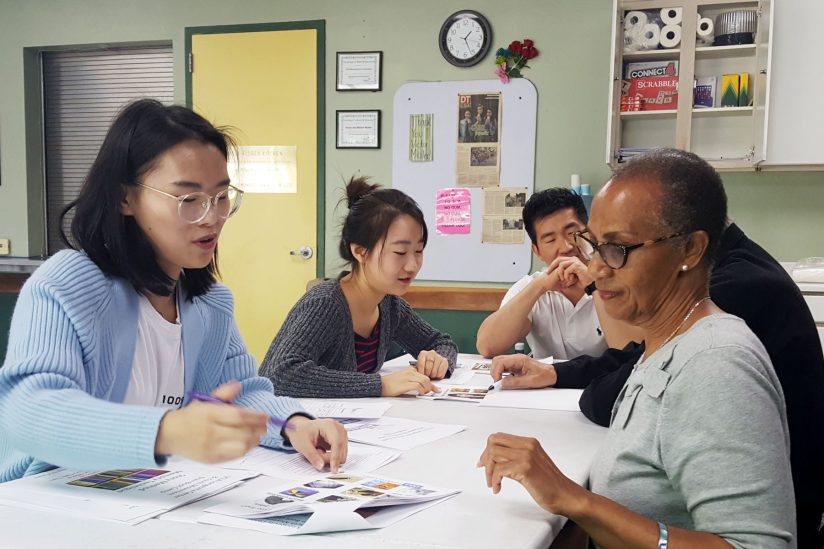

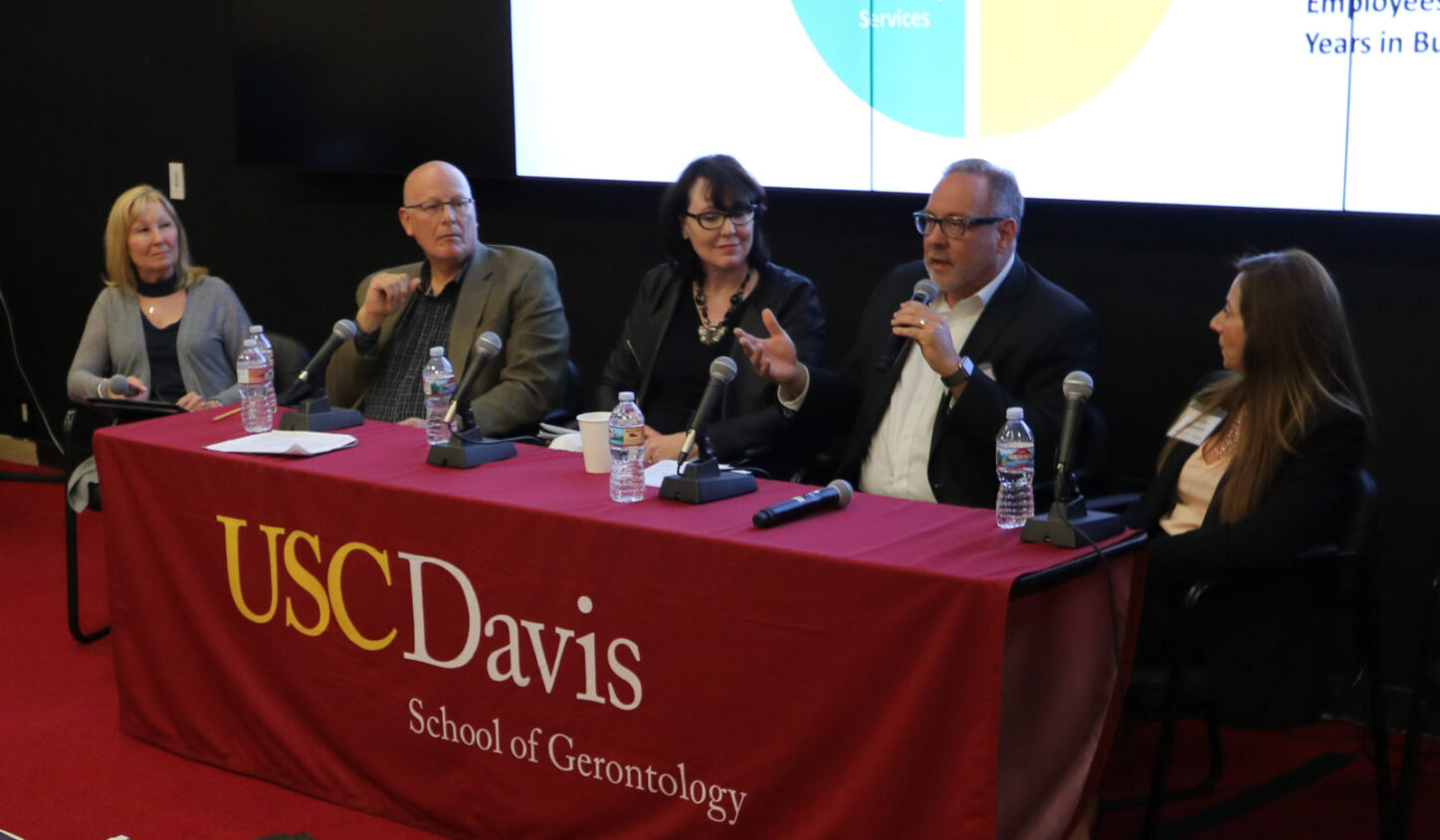
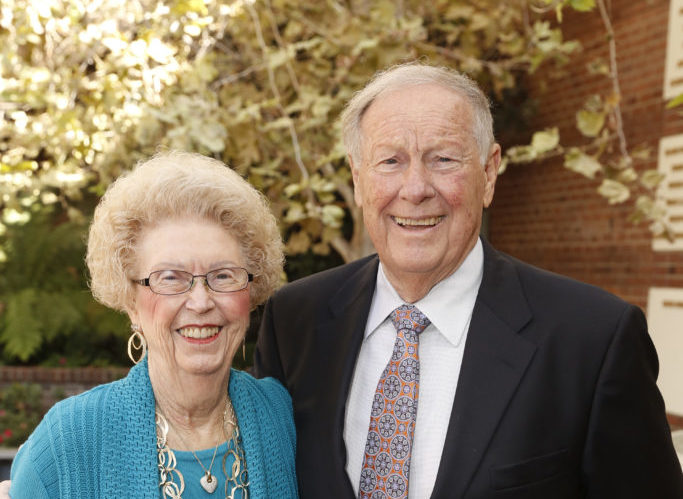
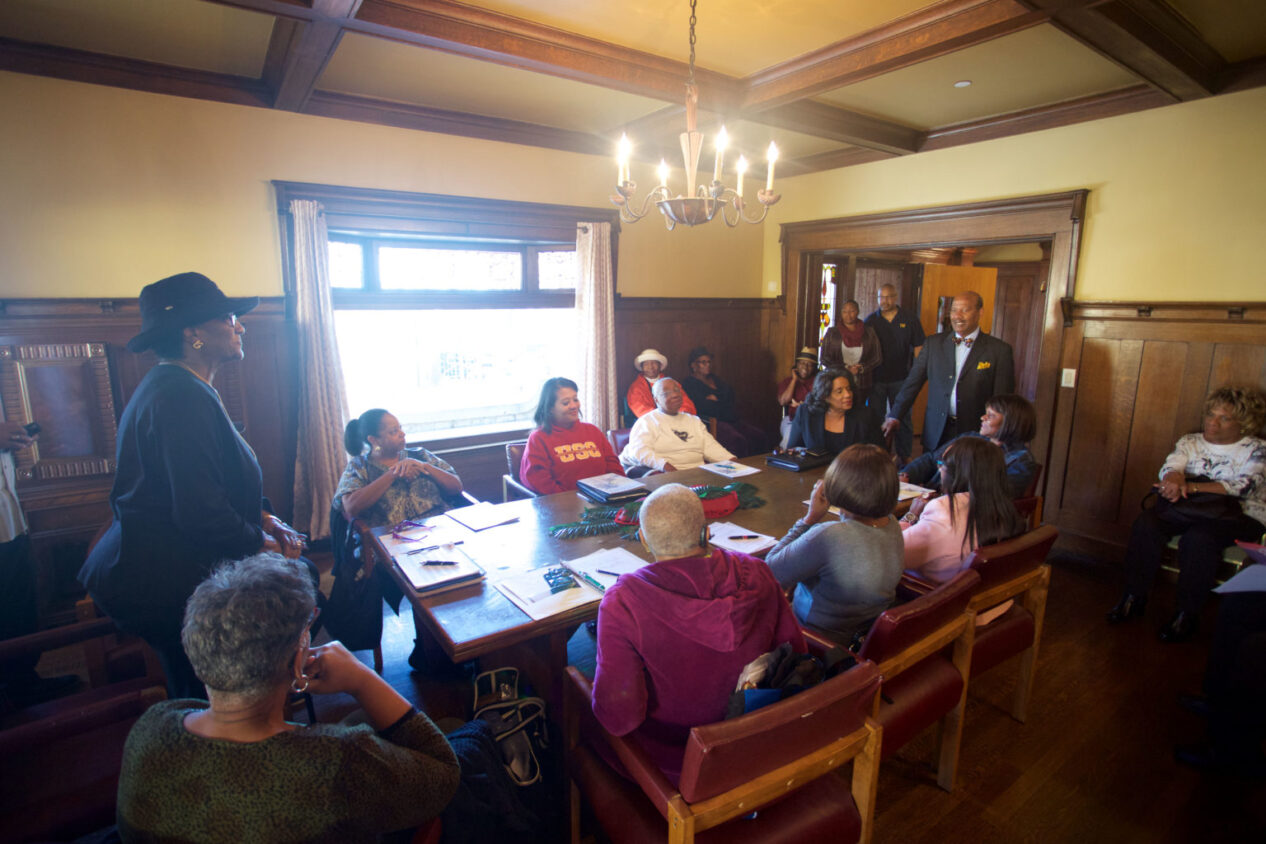
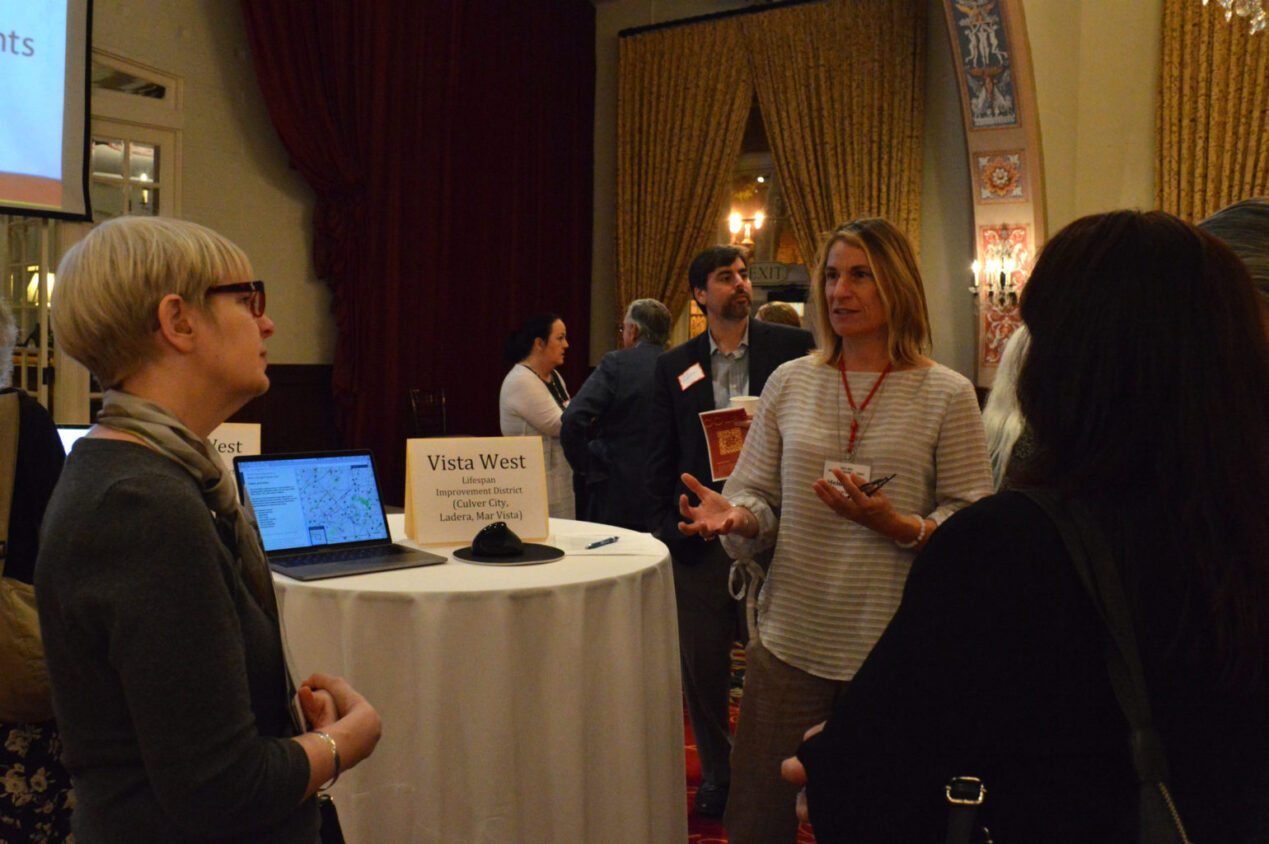
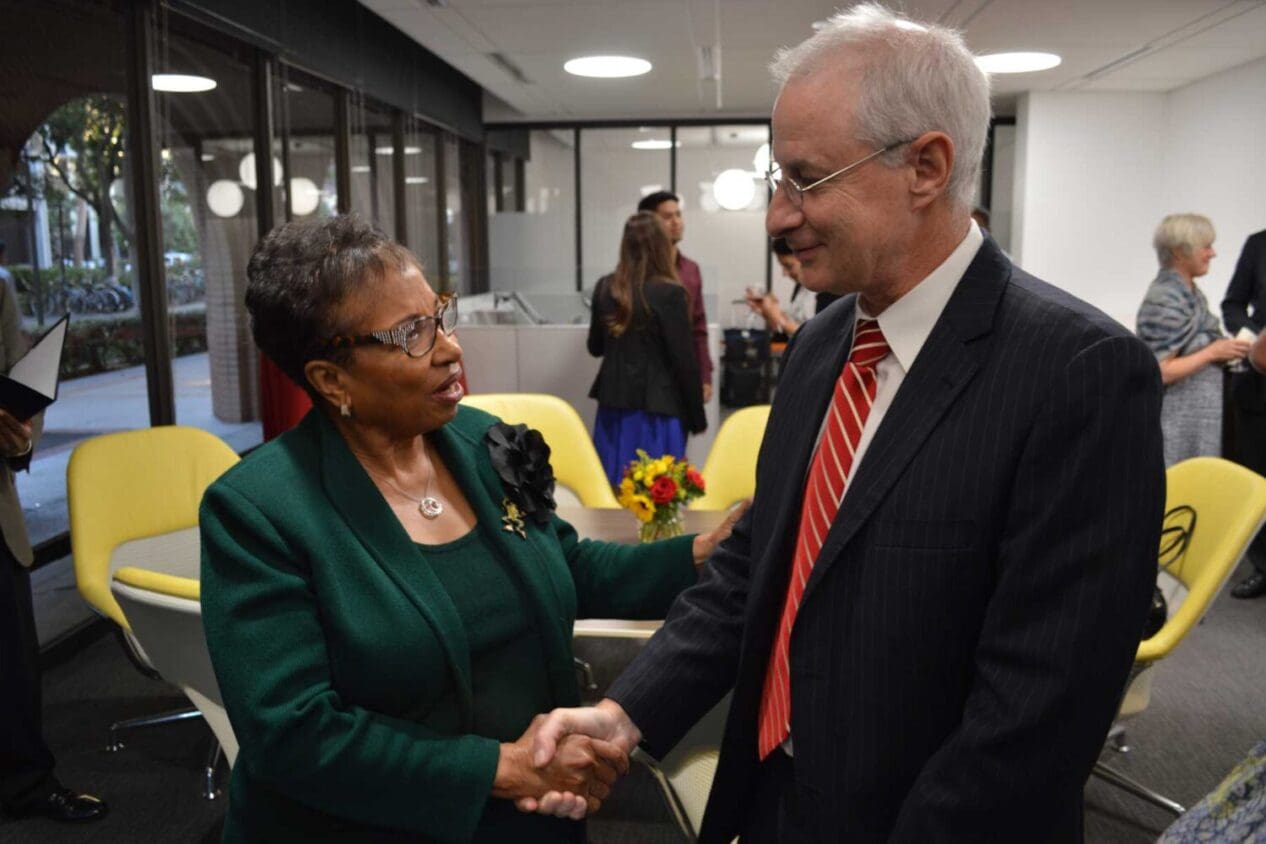
Cheryl Brown made a promise to her mother.
“My mother said, ‘don’t you put me in a nursing home. Don’t you do that to me’,” said Brown, who cared for her mother at home after she suffered a stroke. Brown actually became a family caregiver at age 12 when she helped to care for her grandmother, and has continued in that role since her husband Hardy was diagnosed with amyotrophic lateral sclerosis (ALS) in 2002.
She is one of California’s estimated six million caregivers, providing long-term unpaid care to allow those with a functional disability or cognitive impairment to age at home. She is also a state assemblymember from San Bernardino and chair of the Committee on Aging and Long-Term Care. With the hope of enacting an official policy, Brown has turned to the USC Leonard Davis School of Gerontology for help. The school is seen as a leader in exploring issues centering on family caregiving and aging at home.
Last year Brown sponsored a resolution that established the California Task Force on Family Caregiving. USC Davis, with funding from the AARP and the Archstone Foundation, is supporting the work of the 12-member assembly and Senate-appointed team by providing substantive information and administrative assistance. “We want to continue to have California be an exemplar and to develop innovative ways of addressing caregiving needs, which are only going to increase with the aging of the population,” said Kate Wilber, Mary Pickford Foundation Professor of Gerontology at USC Davis.
Working with Wilber’s team, the task force will deliver a report in July 2018, providing the legislature with recommendations on how to improve services and support for family caregivers. “I think it is going to change a lot of systems and add to them to make sure that a caregiver will be able to not just exist, but thrive,” Brown said at the task force’s kickoff meeting on Oct. 20 at USC. Brown also noted that budgets for caregiving support services have been cut and that California caregivers are providing the state with close to $50 million of free labor, which often comes at a cost to caregivers. “Many times the caregiver gets sick and dies before the person they are caring for,” she said.
California’s task force is part of a growing recognition that caregivers, who are at risk for major diseases and depression, need care themselves.
One year ago, President Barack Obama proclaimed that November would be National Family Caregivers Month and the National Academies of Sciences, Engineering and Medicine recently issued a report recommending the development of a national strategy to address caregivers’ health, economic security and overall well-being. The report, titled “Families Caring for an Aging America,” states that around 20 million people nationwide are providing some form of support — from assisting with bathing and dressing to managing complex medications and providing constant supervision — to an older parent, spouse, friend or neighbor.
USC Professor Donna Benton is an appointed member of the task force. She is also the director of the USC Family Caregiver Support Center, which provides support to individual caregivers. Benton said that one large challenge is getting people to recognize that they are actually caregivers. “A lot of people just take on this role as part of what they think family members are expected to do for one another,” she said. “If you don’t think you are a caregiver, you are not going to ask for help.” Brown agreed that increasing awareness is key. As someone who has been a caregiver since she was young, she was excited to see USC Davis students helping out as part of the task force team and believes that they can be part of the solution.
“It is inspiring to see young people involved,” she said.
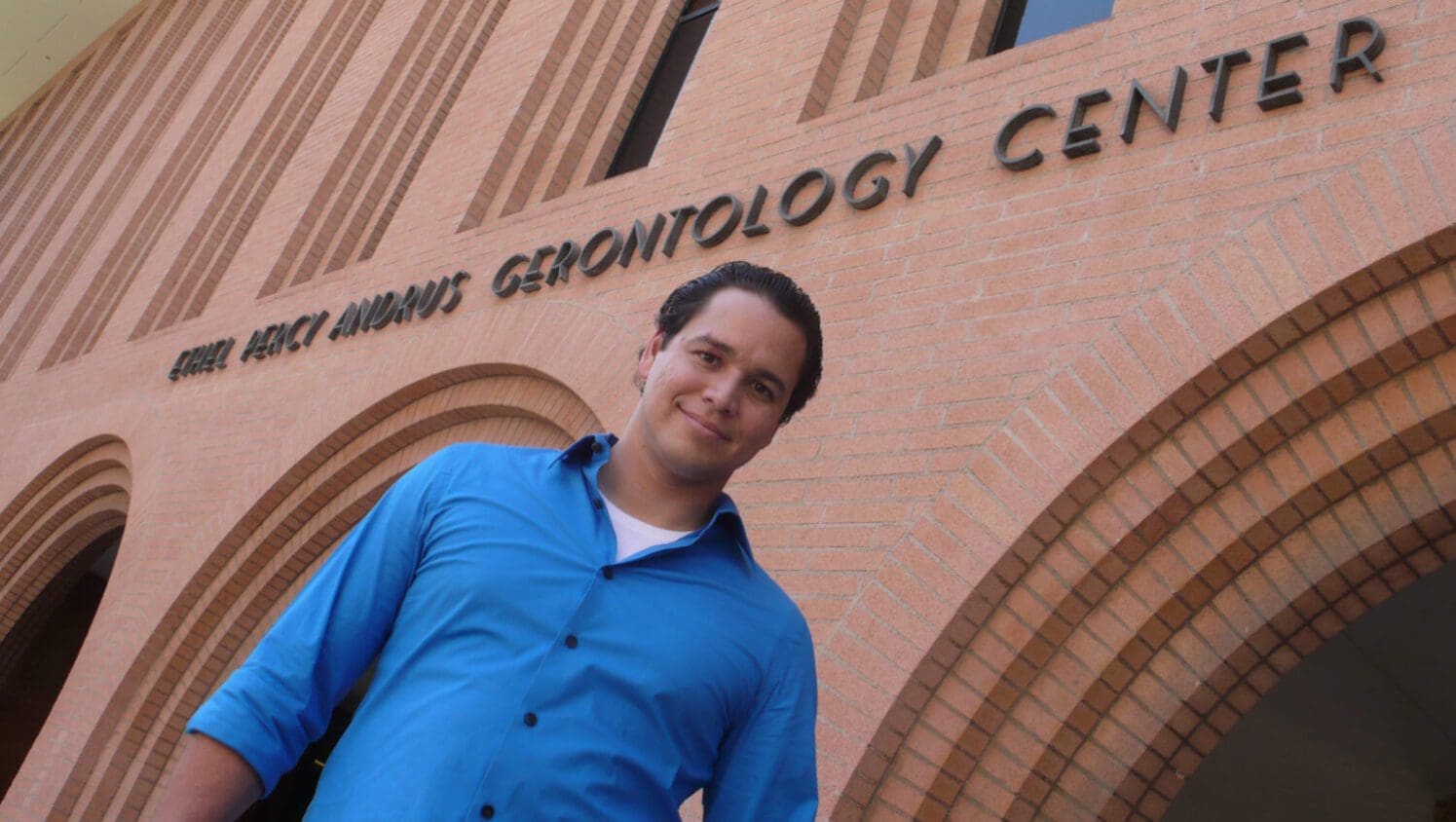

USC Leonard Davis School of Gerontology doctoral student Jeff Laguna (Photo/Trevor Nelson)
End-of-life pain is poorly managed across the board, but why, even with palliative care efforts, do minorities suffer disproportionately?
Tackling what he calls the first study to investigate pain experiences among Whites, Blacks and Latinos following inpatient palliative care (IPC) consults, USC Leonard Davis School of Gerontology doctoral student Jeff Laguna won the Gerontological Society of America’s Elaine M. Brody Award, given for excellence in research.
Co-authored with Rebecca Goldstein, MD, and USC Leonard Davis School Hanson Family Trust Assistant Professor of Gerontology Susan Enguídanos, PhD, MPH, the study was funded by the Archstone Foundation, examining 484 seriously ill patients and how their racial/ethnic differences impacted their end-of-life pain.
“We found something very interesting. Although palliative care did a great job at reducing pain among a racially/ethnically diverse patient population, it seems that Latinos were still more likely to report pain at hospital discharge,” Laguna said. “Previous research suggests a couple possible explanations, but a more detailed study will be needed to understand why Latinos appear to respond differently.”
Some of the existing explanations include the potential for Latinos to view end-of-life pain as a time of necessary and even welcome personal and/or spiritual cleansing, highlighting Laguna’s findings that IPC interventions may need to increase cultural sensitivity. He also finds that this increased awareness will inform future policy changes, which could help revolutionize the way we think about end-of-life care.
“After decades of recognizing the existence of ethnic disparities in health care access and health outcomes, we are continuing to see these patterns today. Illuminating these disparities is a first step to understanding and overcoming them,” Enguídanos said. “Jeff’s commitment to investigating disparities and improving equitable quality of care is commendable and critical.”
“For me, this award is the culmination of a lot of hard work, as I had to travel halfway across the country to master the analyses performed in this study,” Laguna said. “It is my hope that this study opens the door for a more detailed investigation. While this is the first step of many, I believe that it is an important step.”